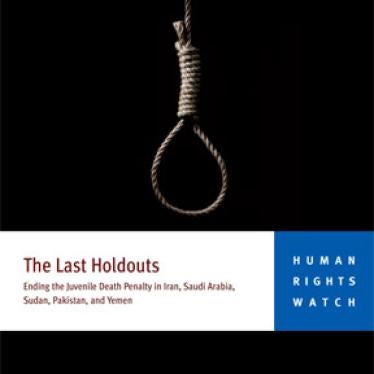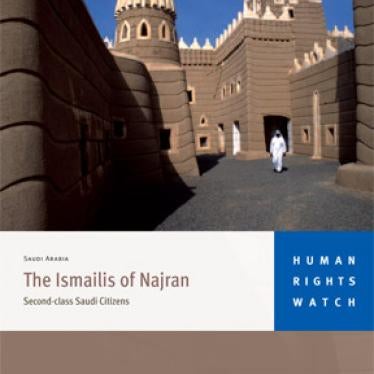(Geneva) - The international community should hold Saudi Arabia to its promises of rights reform, Human Rights Watch said today. UN member states will review Saudi Arabia's record during the Universal Periodic Review at the Human Rights Council in Geneva, the first time that the kingdom will submit its entire human rights record to international review.
In past years, Saudi Arabia has promised to include protection for domestic workers in its labor law, abolish the sponsorship system for migrant workers that often leads to abuses, establish specialized courts and write its first penal code. Other unfulfilled promises relate to protecting children by setting 18 as the age of adulthood, thereby abolishing the juvenile death penalty, and giving women better access to work, education, health and justice, and easing restrictions on their travel.
"For years, Saudi Arabia has made promises to do a better job of protecting rights," said Sarah Leah Whitson, Middle East director at Human Rights Watch. "The international community should ensure that its review of Saudi Arabia does not just produce more promises, leaving the Saudi people empty-handed."
In the first official international scrutiny of Saudi Arabia's overall human rights record, UN member states, in a three-hour question-and-answer session, will review three reports highlighting that record: one submitted by the kingdom; one consisting of observations by UN bodies; and one with observations by nongovernmental organizations, including Human Rights Watch.
Human Rights Watch criticized the government's report, written by the Human Rights Commission, a ministry established in 2005, saying that it contained little factual information on human rights violations and made references to laws and decrees without indicating to what degree, if any, they were being observed.
The Human Rights Commission stated that it had involved all nongovernmental stakeholders in compiling its report, but well-known human rights activists in the kingdom told Human Rights Watch that the commission had not consulted them. The official report describes the government's endeavors to promote civil society and its cooperation with international human rights organizations such as Human Rights Watch. Yet it fails to make note of the ongoing serious violations of rights in the kingdom, including restrictions on speech, association, assembly and religion; an arbitrary criminal justice system, discrimination against women, whom the government treats as legal minors; and serious abuses against migrant workers in the country.
The report also fails to highlight particular abuses against Saudi human rights activists, including the ongoing travel ban against Abd al-Rahman al-Lahim, a Saudi human rights lawyer. Professor Matrook al-Faleh, one of the country's best-known activists, remained in solitary confinement in the intelligence prison without charge for eight months before his release in January 2009. Al-Faleh was among activists who, in 2003 and again since 2006, repeatedly requested permission to establish a genuinely independent local human rights organization, but so far without success. A 2007 draft law that would for the first time establish a legal basis for establishing nongovernmental organizations (NGOs) to operate in the kingdom has been awaiting the government's approval since 2007. The government has barred Human Rights Watch from visiting the kingdom since March 2008, despite promises to the contrary.
"You can measure Saudi transparency in dealing with human rights questions by the government's treatment of local and international activists and rights organizations," Whitson said. "The Saudi reply to inquiries about rights violations or legal developments is typically total silence."
Human Rights Watch published six detailed reports about Saudi Arabia in 2008, examining: the criminal justice system; juvenile justice; the juvenile death penalty; women's rights; migrant domestic workers; and the treatment of the Ismaili religious minority. All reports and recommendations built on discussions with and advice from Saudi policy makers. Human Rights Watch urges the international community to press the Saudi government to fulfill promises of rights reform.








